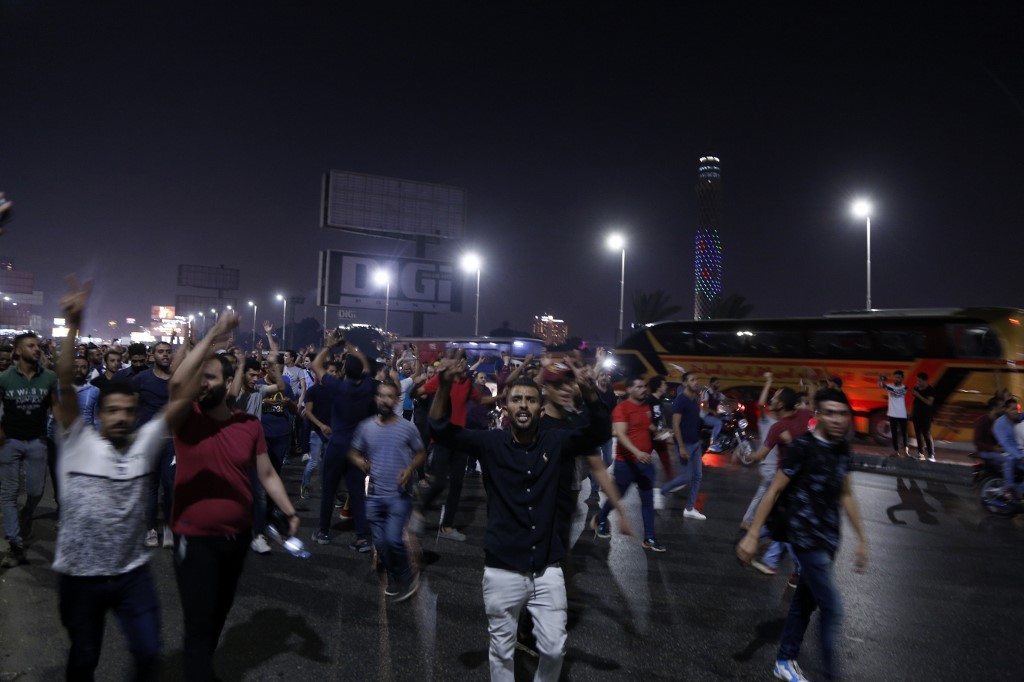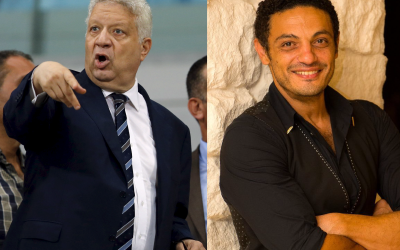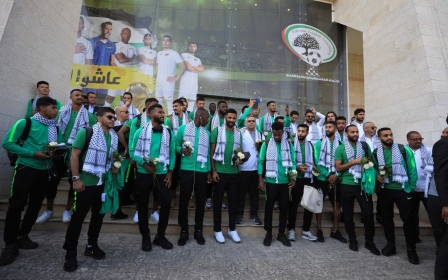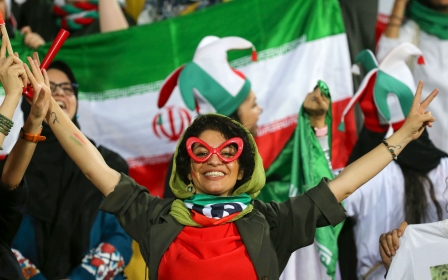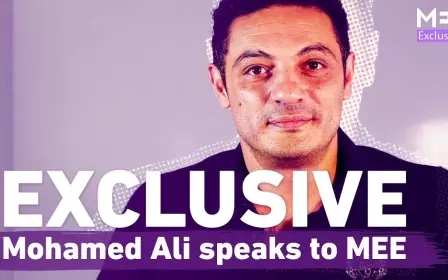Fearing anti-Sisi protests, Cairo cancels football derby
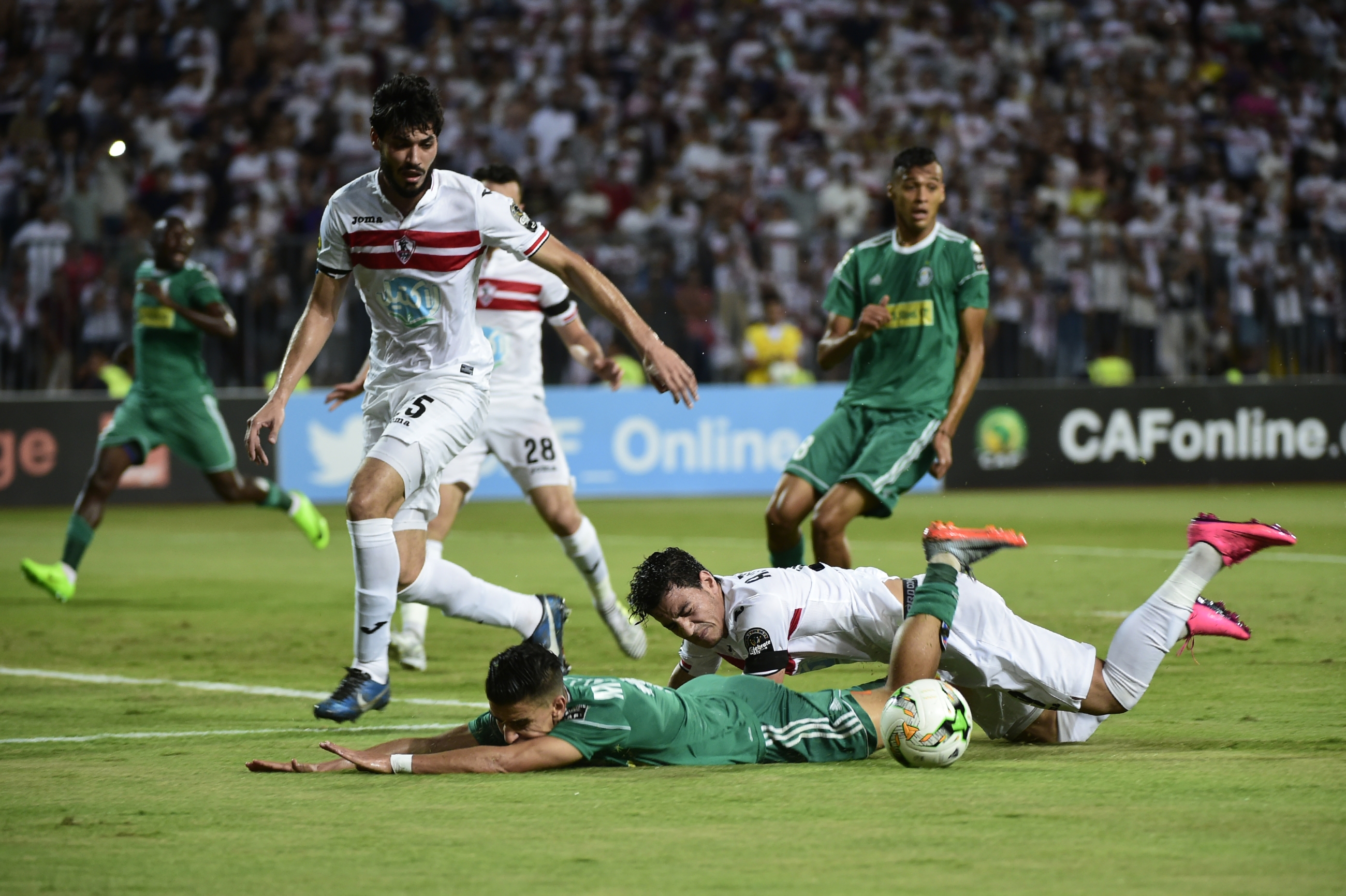
The Egyptian authorities' decision to cancel the Cairo derby over fears of protests against President Abdel Fattah el-Sisi has stoked public anger, with an official from an affected team labelling the decision as "absurd".
Excitement had been building among fans of Al-Ahly and Zamalek, who were set to face off in the Cairo derby on Saturday evening.
'This makes Egypt look bad in the media and in the international scene'
- Member of Al-Ahly's upper management
But on Wednesday, the Egyptian Football Association (EFA) announced that the match between the country’s two biggest clubs was delayed until an unspecified date, following a request from security officials over concerns that protests could break out.
"It is absurd to postpone," a member of Al-Ahly's upper management told Middle East Eye, speaking on condition of anonymity.
Before the postponement, he stressed, officials had already decided that fans would not be permitted into the stadium in Cairo's Nasr City district, which is home to several army and police headquarters.
New MEE newsletter: Jerusalem Dispatch
Sign up to get the latest insights and analysis on Israel-Palestine, alongside Turkey Unpacked and other MEE newsletters
"This is a stadium that is heavily secured by police, army, and military police," he said. "In addition to that, it will be held without a single member of the audience, and the players will be escorted from and to their clubs under the supervision of the police."
The postponement comes weeks after a Super Cup match between the two teams on 20 September ended with protests across the country, sparked by Mohamed Ali, an Egyptian military contractor-turned-whistleblower.
In the preceding weeks, Ali had fired off videos outlining what he said were Sisi's corrupt activities that he had seen first hand, scandalising the country.
That match was played an hour earlier at the request of Zamalek manager Mortada Mansour, an influential Sisi supporter who is also an MP, making it coincide with the time Ali originally called for protests to start.
Ali responded to the delay by telling his supporters to start demonstrations after the game.
The 20 September protests were followed by others the following week; these were quickly shut down by authorities, who have arrested more than 3,000 in a crackdown on dissent.
Meanwhile, Ali has continued to release his videos calling for protests.
Despite the footage of angry demonstrators calling for Sisi's removal, Egyptian government and pro-state media outlets contend that the 20 September protests were merely the celebrations of Al-Ahly fans after their team's win against Zamalek.
A security source told MEE that the National Security Apparatus contacted the EFA this week to prevent any street celebrations, fearing "such celebrations could be used to propagate that there are protests or anger".
But the decision itself has sparked anger among football fans.
'They are so scared'
Mohamed Ismail, 29, a Zamalek fan who was a member of the Ultras White Knights, a hardcore group of fans outlawed by the Egyptian state, told MEE that the decision reflects a frightened government.
"They are so scared to the extent they cannot host a derby game in a stadium that is only a couple of metres from the headquarters of the Presidential Guard forces," Ismail said.
"A regime as trivial and weak as this should not be taken seriously. They arrested the Ultras, commercialised the game, but they are still afraid."
Al-Ahly has hit back, refusing to play any matches until it goes up against Zamalek.
Mansour, Zamalek's manager, had originally held the same position, later changing track. On Saturday, Zamalek will play al-Mokawloon, with Mansour saying this week that he "appreciates the state and its institutions and doesn't want to cause any problems in the coming period".
However, others involved in Egyptian football worry the postponements are problematic for the country's international reputation.
Earlier this week, renowned TV presenter and former EFA member Ahmed Shobeir said on his television show that the match will be held "at the end of the first round of the league or just before the second round begins".
"The orders of the authority of the country [are] the main priority, and we will not do anything to defy that," he said.
However, during his Thursday morning radio show, the former player said that the delay might endanger positive steps taken in recent years to resume football activity in Egypt.
'The orders of the authority of the country [are] the main priority, and we will not do anything to defy that'
- Ahmed Shobeir, former footballer and TV presenter
Egyptian football fans were banned from attending league matches for six years after clashes in Port Said city in 2012 led to the death of 74 Al-Ahly fans.
"We managed to organise the AFCON and impress the world, we managed to host international youth championships, and we managed to allow thousands of fans back to stadiums," Shobeir said, referring to the Africa Cup of Nations.
The Al-Ahly upper management member agreed. "This makes Egypt look bad in the media and in the international scene, and makes the federation looks like a state puppet, not an independent decision-maker," he said.
"Even from a business point of view, how can investors, international teams, or even foreign referees agree to come if they know that the state postponed its derby match fearing some protesters?"
Middle East Eye delivers independent and unrivalled coverage and analysis of the Middle East, North Africa and beyond. To learn more about republishing this content and the associated fees, please fill out this form. More about MEE can be found here.


